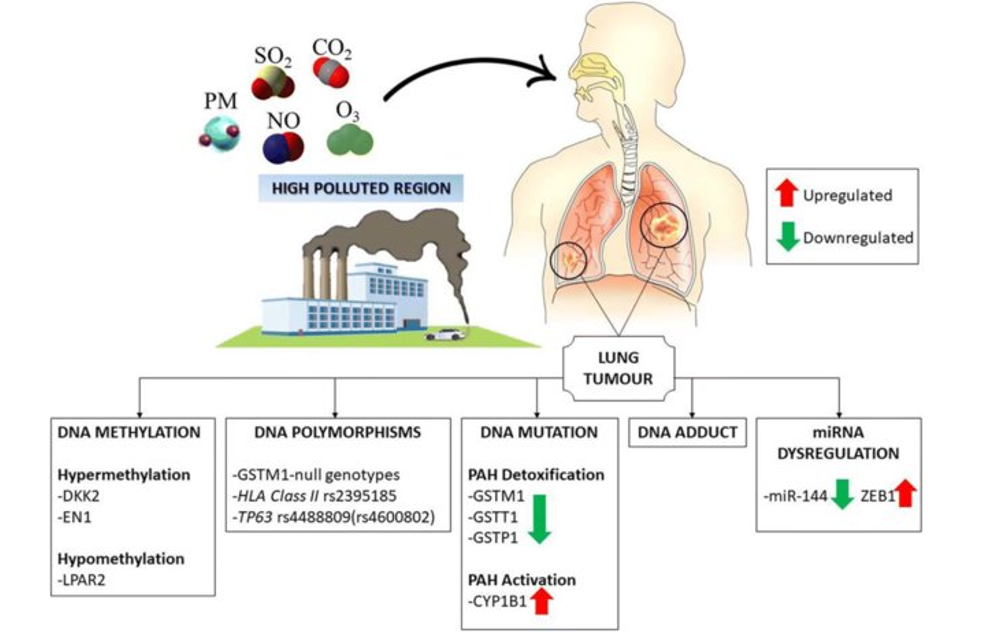Lung Cancer: The Hidden Consequence of Air Pollution
Air pollution has long been known to cause various health problems, but few people realize the significant impact it can have on the development of lung cancer. With the rise in industrialization and urbanization, air pollution levels have increased drastically, making it crucial for individuals to understand the dangers and take preventive measures. Indoor air pollution, like radon can cause lung cancer. Epidemiological studies done over the last 40 years have shown that general air pollution, mostly caused by the incomplete burning of fossil fuels, may be a cause of more lung cancer (1). The researchers also concluded that 7% of the total mortality results from lung cancer due to exposure to PM2.5 (2).
Lung cancer is a type of cancer that starts in the lungs and can spread to other parts of the body. It is the leading cause of cancer deaths worldwide, with an estimated 2.21 million deaths in 2020 (WHO).
Air pollution contains a mixture of toxic substances, including carcinogens like particulate matter, nitrogen di oxides. When these particles are inhaled, they can damage the DNA in our lung cells, leading to mutations and eventually cancer. Studies have shown that exposure to air pollution increases the risk of developing lung cancer, especially in smokers. Ambient air pollution is the leading cause of cancer death; also, particulate matter, depending on its size, can reach the alveoli. While moving to alveoli, PM can cause respiratory system carcinogenesis (3) (4).

Figure 1: The potencial mechanism and biomarkers in air pollution-realted lung cancer (2)
Lung cancer is a devastating disease, and air pollution is a significant contributing factor. By being aware of the dangers and taking preventive measures, we can reduce our risk of developing this disease and protect our health. If you have any concerns or symptoms, it's essential to seek medical attention promptly. Together, we can make a difference in the fight against lung cancer.
Global Cancer Data by Country
World Cancer Research Fund International: https://www.wcrf.org/cancer-trends/worldwide-cancer-data/
For more information please visit this site: https://www.iarc.who.int/cancer-type/lung-cancer/
References:
This website was produced with the support of the United States Agency for International Development (USAID) under the terms of USAID's Research for Decision Makers (RDM) Activity cooperative agreement no. AID-388-A-17-00006
Views expressed herein do not necessarily reflect the views of the U.S. Government or USAID. icddr,b is also grateful to the Governments of Bangladesh, Canada, Sweden and the UK for providing unrestricted/institutional support
68, Shaheed Tajuddin Ahmed Sarani Mohakhali, Dhaka 1212, Bangladesh
icddr,b is located at the Mohakhali area in Dhaka, just ask your driver for the "Cholera Hospital"
